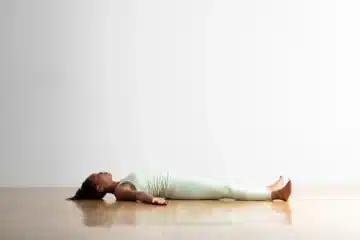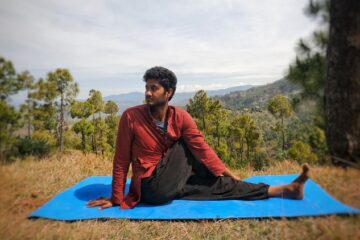In today’s fast-paced world, anxiety and stress have become all too common experiences for many people. The constant demands of work, relationships, and daily responsibilities can leave us feeling overwhelmed and exhausted.
However, amidst the chaos, there lies a gentle remedy that can offer relief and solace – yoga. Let’s explore how yoga can be a powerful tool for managing anxiety and stress, promoting inner peace, and restoring balance to both body and mind.
Understanding Anxiety and Stress:
Anxiety and stress are natural responses to the challenges and uncertainties of life. However, when these feelings become overwhelming or persistent, they can interfere with our ability to function effectively and diminish our overall well-being.
Anxiety is characterized by excessive worry, fear, and apprehension, while stress manifests as physical, emotional, and mental tension in response to perceived threats or pressures.
The Healing Power of Yoga:
Yoga offers a holistic approach to managing anxiety and stress, addressing the interconnectedness of the body, mind, and spirit.
Through the integration of mindful movement, breathwork, and meditation, yoga provides a safe and supportive space for exploring and releasing the physical and emotional tensions that contribute to anxiety and stress.
By cultivating greater awareness and acceptance of our thoughts, emotions, and sensations, yoga helps us develop resilience and equanimity in the face of life’s challenges.
Mindful Movement and Asana Practice:
The physical practice of yoga, known as asana, offers a gentle yet effective means of reducing anxiety and stress by promoting relaxation, releasing tension, and increasing body awareness.
Gentle, grounding poses such as Child’s Pose, Forward Fold, and Legs-Up-the-Wall Pose can help calm the nervous system and soothe the mind.
Flowing sequences such as Sun Salutations and Gentle Hatha Yoga can help release stagnant energy and create a sense of flow and ease in the body.
Breath Awareness and Pranayama:
Breathwork, or pranayama, is an essential component of yoga practice that can help regulate the nervous system, calm the mind, and reduce anxiety and stress.
Deep belly breathing, alternate nostril breathing, and extended exhalation techniques such as 4-7-8 breathing can help induce a relaxation response, quiet the mind, and promote a sense of inner peace and tranquility.
By focusing on the breath, we can anchor ourselves in the present moment and cultivate a greater sense of ease and well-being.
Mindfulness Meditation and Relaxation Techniques:
Mindfulness meditation offers a powerful tool for managing anxiety and stress by cultivating present-moment awareness, non-judgmental observation, and self-compassion.
Guided meditation practices, body scans, and progressive muscle relaxation techniques can help quiet the mind, release physical tension, and promote deep relaxation and renewal.
By creating a regular meditation practice, we can cultivate resilience and emotional balance, allowing us to navigate life’s challenges with greater ease and grace.
Community and Support:
The practice of yoga often extends beyond the individual, offering opportunities for connection, community, and support.
Attending yoga classes, workshops, or retreats can provide a sense of belonging and camaraderie, as well as guidance from experienced teachers and fellow practitioners.
The support of like-minded individuals and the nurturing environment of the yoga community can offer solace and encouragement on the journey towards anxiety and stress relief.
In conclusion, yoga offers a transformative path to managing anxiety and stress, promoting inner peace, and restoring balance to both body and mind.
By embracing the practice of mindful movement, breathwork, meditation, and relaxation, we can cultivate resilience, equanimity, and well-being in the face of life’s challenges.
So, take a moment to pause, breathe, and connect with the present moment – for within the depths of yoga lies the key to finding serenity amidst the storms of anxiety and stress.



